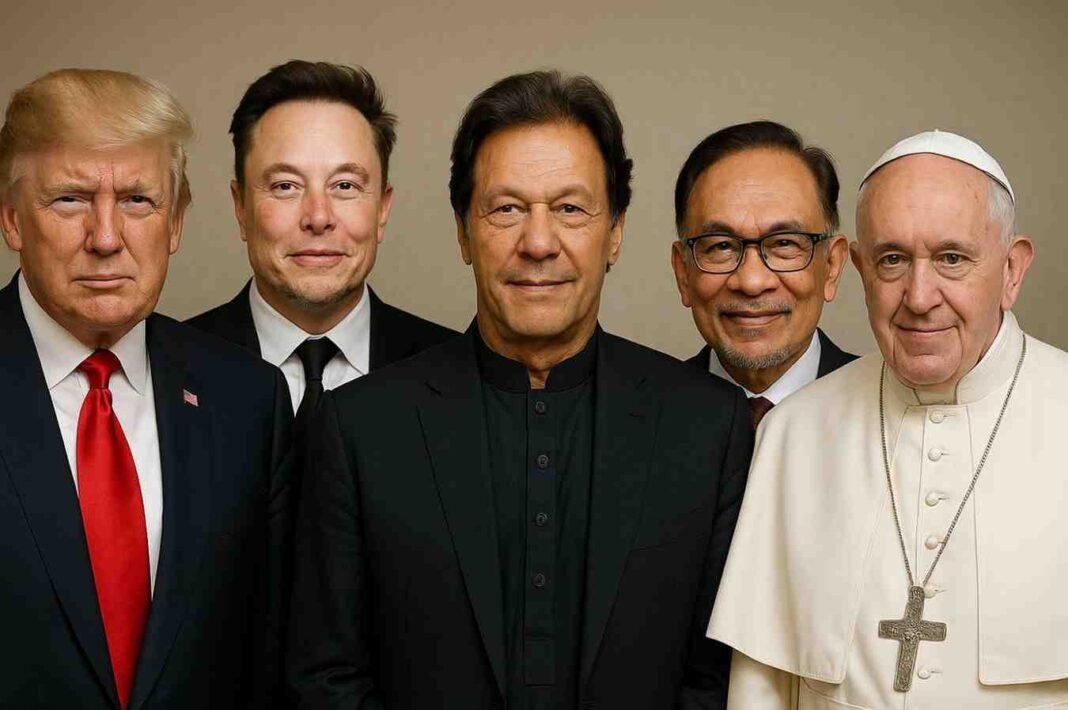As the world awaits the 2025 Nobel Peace Prize announcement on Friday, speculation is running high over who might claim one of the most prestigious global honors. The Norwegian Nobel Committee has confirmed that there are 338 candidates this year—244 individuals and 94 organizations—marking a notable increase from 2024’s 286 nominees. While the committee traditionally keeps its nominee list confidential, several prominent names have emerged through public declarations and political endorsements.
Trump’s Persistent Campaign for the Peace Prize
Among the most talked-about figures is US President Donald Trump, who has long expressed a keen desire to receive the Nobel Peace Prize. His campaign has been both vocal and visible, with supporters and allies repeatedly nominating him for what they describe as his “historic efforts” to broker peace. Israeli Prime Minister Benjamin Netanyahu, Pakistan’s army chief Field Marshal Asim Munir, and Cambodian Prime Minister Hun Manet are reported to have nominated Trump for the award.
In the United States, Congressman Buddy Carter also nominated the president, citing Trump’s role in negotiating a ceasefire between Israel and Iran. However, reports indicate that some nominations, including those from Netanyahu and Pakistan’s government, were submitted after the February 1 deadline—potentially disqualifying them from consideration for this year’s award.
Addressing military officials at Marine Corps Base Quantico last month, Trump remarked with characteristic irony, “Nobody’s ever done that. Will you get the Nobel Prize? Absolutely not. They’ll give it to some guy that didn’t do a damn thing.” His comments underscored both his awareness of past snubs and his continuing campaign for global recognition.
Posthumous Nomination for Pope Francis
The late Pope Francis, who passed away in April, is also among this year’s reported nominees. Norwegian politician Dag Inge Ulstein of the Christian Democratic Party submitted the nomination before the pontiff’s death, recognizing his “unstoppable contribution to promoting binding and comprehensive peace and fraternity among people and nations.” However, the Nobel Peace Prize has never been awarded posthumously, making it unlikely that the Pope will be declared a recipient this year.
Pope Francis was previously nominated in 2022 for his work in peacebuilding, reconciliation, and environmental advocacy, earning widespread admiration across religious and cultural boundaries.
Imran Khan’s Second Nomination Highlights Political Turmoil
Former Pakistani Prime Minister Imran Khan, currently imprisoned, has also been nominated for the 2025 Nobel Peace Prize. His nomination comes from members of the Pakistan World Alliance (PWA) in collaboration with Norway’s Partiet Sentrum political party.
In a statement on social media platform X, Partiet Sentrum announced, “We have nominated Imran Khan, the former prime minister of Pakistan, to the Nobel Peace Prize for his work on human rights and democracy.” This marks Khan’s second known nomination, following his 2019 recognition for efforts to promote regional peace in South Asia during heightened tensions with India.
Elon Musk’s Free Speech Advocacy Gains Attention
Tech magnate Elon Musk has emerged as an unconventional but high-profile candidate for the Peace Prize. His nomination, submitted by Slovenian Member of the European Parliament Branko Grims, credits Musk for his “defense of the fundamental human right of freedom of speech and peace.” Grims even shared a screenshot of the Nobel Committee’s confirmation email, fueling public interest and debate over Musk’s inclusion.
Musk’s critics, however, argue that his sometimes polarizing approach to social media moderation and global politics could complicate his candidacy. Still, his nomination underscores the growing intersection between technology, communication, and global peace.
Anwar Ibrahim’s Diplomatic Efforts Recognized
Rounding out the list of widely discussed nominees is Malaysian Prime Minister Anwar Ibrahim. His name has been proposed by academic figures Prof Dr Datuk Osman Bakar and Prof Dr Phar Kim Beng, citing his “commitment to dialogue, regional harmony, and peace through non-coercive diplomacy.” They also highlighted his role in mediating the Thailand–Cambodia ceasefire, which they described as “a testament to his patient and inclusive approach to leadership.”
A High-Stakes Global Watch
As Friday’s announcement nears, the world’s attention turns to Oslo, where the Nobel Committee will reveal its choice for 2025. With figures ranging from global leaders to business icons and spiritual visionaries, this year’s lineup reflects the diverse and evolving nature of global peace efforts. Regardless of who ultimately receives the award, the debate surrounding the nominees has already reignited global conversations about the meaning of peace in an increasingly polarized world.








